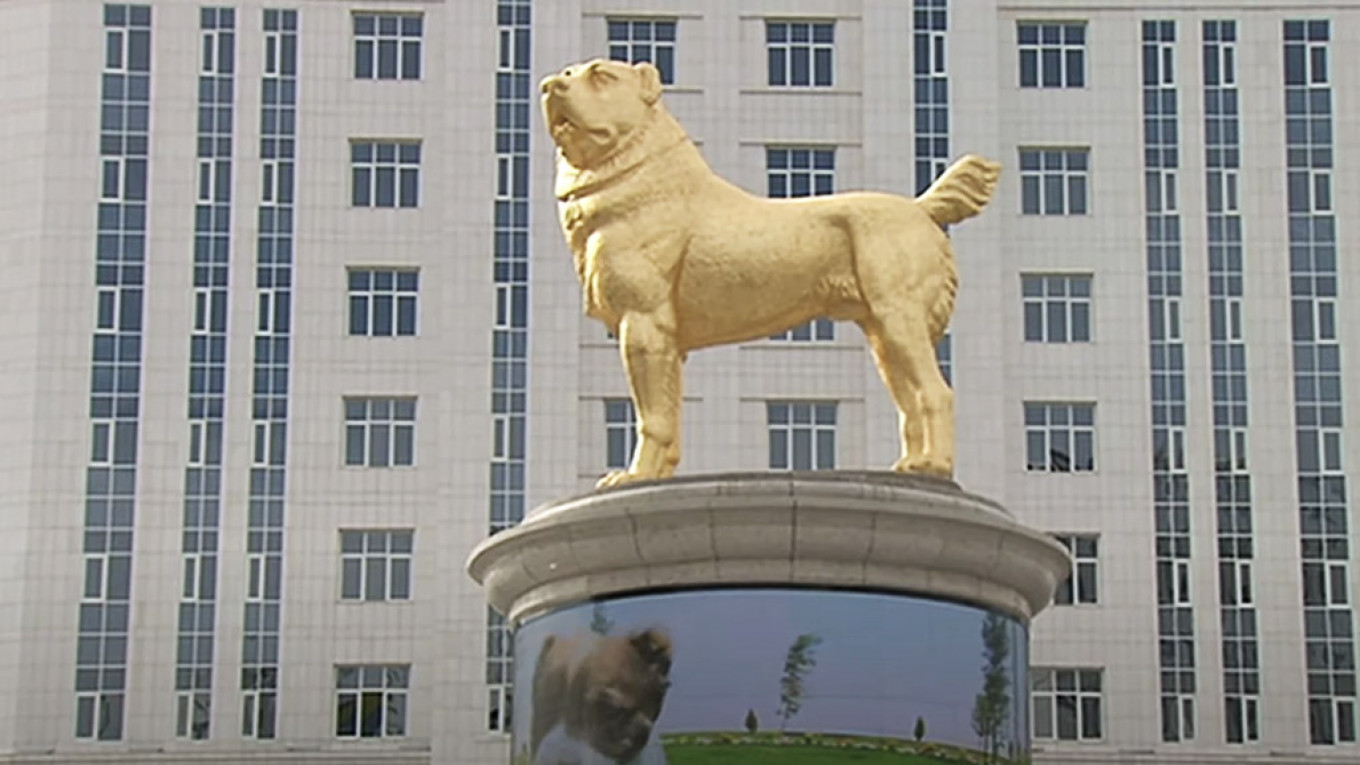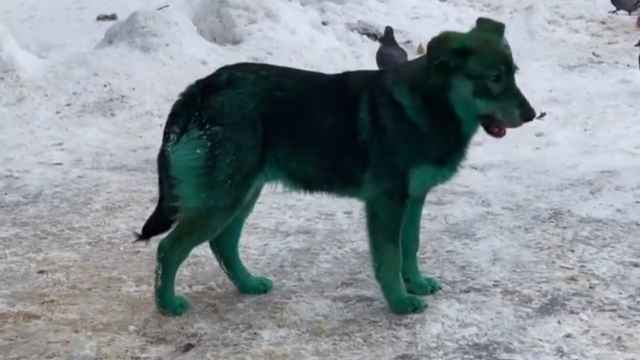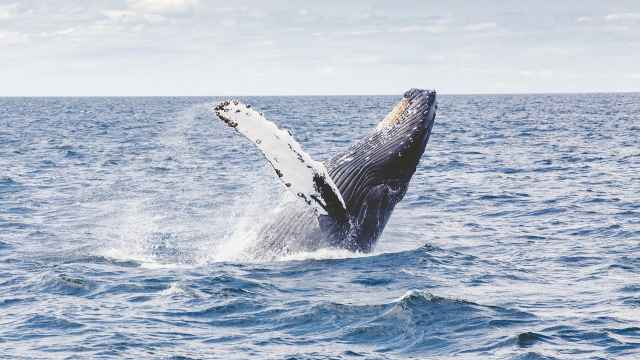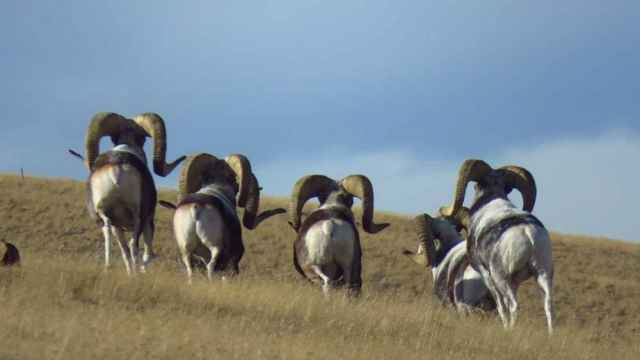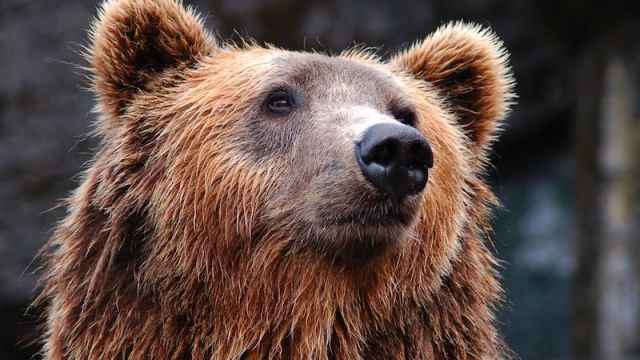Turkmenistan’s eccentric leader Gurbanguly Berdymukhamedov has unveiled a giant golden statue in honor of his favorite dog breed, the Alabai.
The six-meter golden dog atop a nine-meter stone pedestal aims to depict the “dignity and self-assuredness” of the breed, also known as the Central Asian Shepherd Dog, state media in the isolated ex-Soviet country reported. Wrapped around the pedestal is a video screen that shows footage of real Alabais playing.
The new statue in the capital city of Ashgabat will act as the centerpiece of a new residential district for civil servants. At its unveiling ceremony on Wednesday, local performers depicted an elder handing an Alabai puppy over to a young boy to symbolize the dog’s presence across generations of Turkmen.
Berdymukhamedov's love of Alabai dogs has long been part of his cult of personality and he reportedly personally came up with the idea for the monument. In 2017, he gifted an Alabai puppy to Russian President Vladimir Putin and gave another to then-Prime Minister Dmitry Medvedev two years later.
The Alabai statue cements the dog as only the second type of animal to be memorialized in the capital's sculpture, joining the Akhal-Teke horse. In 2015, a 21-meter golden statue of Berdymukhamedov sitting on horseback was installed in Ashgabat.
In his book on the Alabai breed published last year, Berdymukhamedov wrote that the ancestors of modern-day Turkmen had seen “their dreams in the Akhal-Teke horse and their happiness in the Alabai dog.”
While the statue's cost has not been made public, it comes amid reports of economic crisis and shortages of bread, oil, eggs and other staples across the country. The country has also officially reported zero coronavirus cases, a number that has been met with widespread skepticism.
A Message from The Moscow Times:
Dear readers,
We are facing unprecedented challenges. Russia's Prosecutor General's Office has designated The Moscow Times as an "undesirable" organization, criminalizing our work and putting our staff at risk of prosecution. This follows our earlier unjust labeling as a "foreign agent."
These actions are direct attempts to silence independent journalism in Russia. The authorities claim our work "discredits the decisions of the Russian leadership." We see things differently: we strive to provide accurate, unbiased reporting on Russia.
We, the journalists of The Moscow Times, refuse to be silenced. But to continue our work, we need your help.
Your support, no matter how small, makes a world of difference. If you can, please support us monthly starting from just $2. It's quick to set up, and every contribution makes a significant impact.
By supporting The Moscow Times, you're defending open, independent journalism in the face of repression. Thank you for standing with us.
Remind me later.


